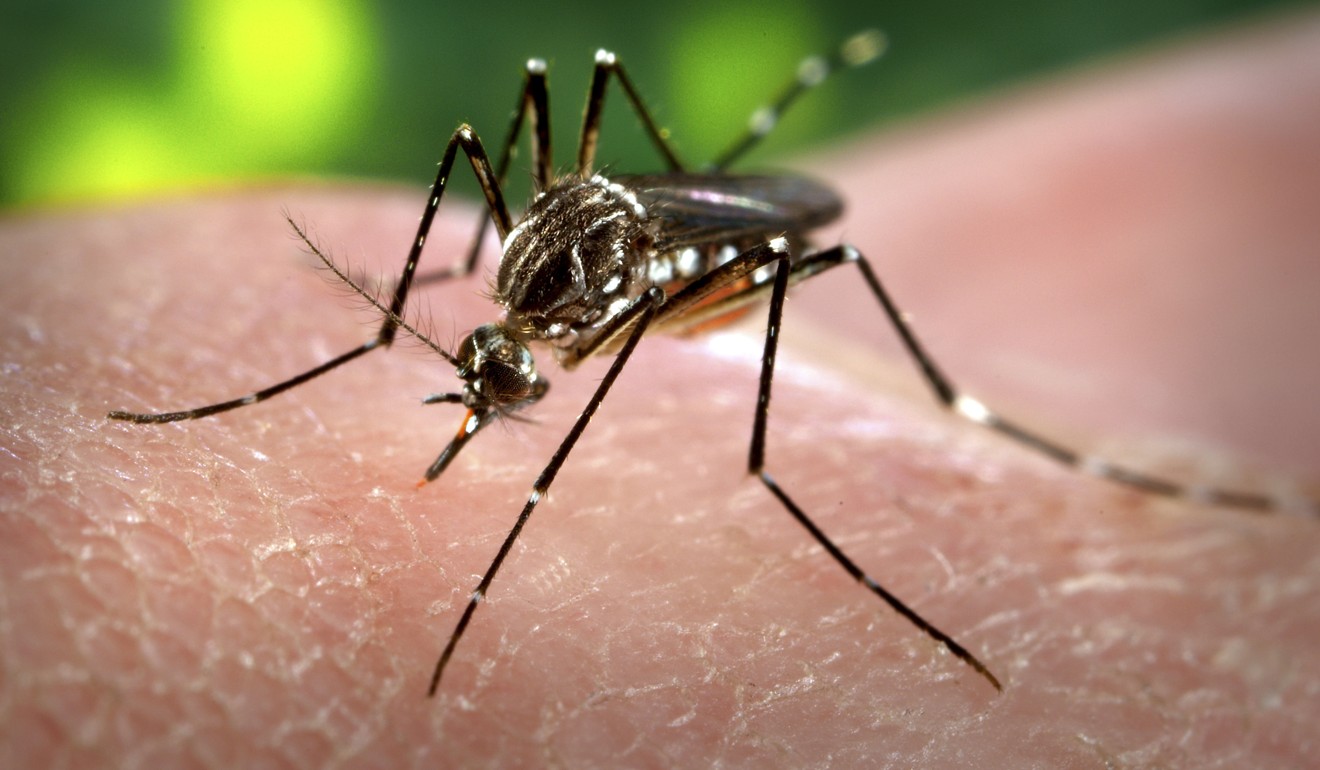
Warnings of ‘exponential growth’ after three more dengue fever cases in Hong Kong
Seven local cases have been confirmed in the past three days – the same total as were found between 2015 and 2017
Three more local cases of dengue fever were confirmed on Thursday, as health authorities warned of a possible “exponential growth” of similar cases.
The latest announcement by the Centre for Health Protection came after four local cases of the mosquito-borne infection were confirmed on Tuesday.
“It is very worrying to see we have that many cases within a short period of time,” the centre’s controller, Dr Wong Ka-hing, said. “The current situation is very tough and unprecedented.”
The total of seven local cases confirmed from Tuesday to Thursday was equal to the total of local cases recorded between 2015 and last year. There was one case last year, four cases in 2016 and two cases in 2015.
Dengue fever can, in very rare cases, be fatal, with risks higher for the elderly. Those infected are likely to display symptoms such as high fever, severe headache and muscle pain.
While there is no cure, treatment for the viral infection includes managing the fever and ensuring the patient has enough fluids.
Lion Rock Park, in Wong Tai Sin, was suspected to be one of the sources of the infection, as five of the seven confirmed patients had visited it. The 76-year-old woman and the 17-year-old boy whose infections were announced on Tuesday had both visited the park.
So had the three patients confirmed on Thursday. They included a 61-year-old woman who works at the park. The two other patients, a 31-year-old man and a 39-year-old woman, had visited it for barbecues.
“We believe it is very likely that Lion Rock Park is the source of infection for some of the cases,” Wong said.

“We have to be very cautious. There is a possibility of an exponential growth in the number of cases within a short period of time,” he said, adding that he would not rule out there being more reports of local cases in the coming week or two.
He warned that a major dengue fever epidemic in the city could challenge the city’s health care system.
The centre had on Wednesday announced that genetic sequences of the virus carried by three of the four earlier cases were the same. Wong said such findings for the latest three cases were expected to be known later.
The infection can be spread by the Aedes albopictus mosquito, common in Hong Kong.
Lee Ming-wai, the pest control officer-in-charge at the Food and Environmental Hygiene Department, said mosquito control work had been conducted in areas where patients had visited.
He added that hygiene officers would also focus on killing adult mosquitoes, which can readily transmit the virus.
The health minister Professor Sophia Chan Siu-chee said an interdepartmental meeting would be convened to follow up on mosquito control work in the city.
University of Hong Kong microbiologist Dr Ho Pak-leung told a radio programme that the elimination of the mosquitoes and their breeding grounds had to be “fast and thorough” to prevent further transmission.
According to a study by researchers from Chinese University and Queen Elizabeth Hospital, an estimated 4.6 per cent of the city’s population carried antibodies against dengue, and the figure rose to 32.7 per cent for those aged 65 or older. The figures were based on tests on 2,100 serum samples collected from patients admitted to Prince of Wales Hospital in Sha Tin from 2013 to 2015.
Additional reporting by Ernest Kao

